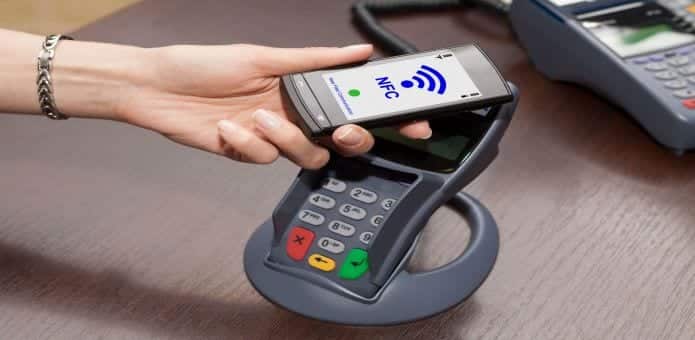The pros and cons of Near Field Communications (NFC) technology
Last year, more than one billion mobile phones were equipped with Near Field Communications (NFC) technology and with this increase comes a whole host of potential security dangers. A wide range of modern platforms use NFC to work and for those of you who are unsure about the technology behind NFC, here’s a brief description of how it works:
Near Field Communications (NFC): NFC is a technology that is used to allow two electronic devices communicate with one another when in close proximity.
Many people are sceptical about the safety of NFC, especially when using it to make payments through a stored credit card and rightly so. With the endless new technologies at our fingertips, a certain level of privacy is inevitably substituted but is it a risk that is worth taking and just how big the risk of using NFC does pose?
NFC: The Advantages
Despite the obvious security issues, NFC is hugely beneficial to modern users looking for added convenience. This technology makes it easy for everyone from contactless card users to Apple customers to do everyday chores, such from making a payment without having to tediously enter a PIN or sign anything. Its ease of use and convenience is undeniably attractive and it offers users enhanced versatility, from the checkouts to a mobile app store.
NFC also has other valuable benefits, as it can be used by healthcare professionals to stop the medicine from going to the wrong patient and it has less serious but extremely convenient uses, such as allowing users to interact with each other on social media platforms without having to tap through menu screens.
NFC: The Risks
With these benefits comes a certain level of risk, as NFC works by storing private data from identification details through to credit card information. Potential security risks range from data corruption and eavesdropping to theft, interception attacks and unauthorised changes to personal materials. Thieves can steal data by using a card reader while standing close to you to read the details on your contactless card and they can use these readers on unsuspecting people at any time, without having to physically take the card from your wallet or purse.
Solutions
The most effective way to protect your contactless card data from being stolen is to invest in a customised card holder that will prevent thieves from being able to pull the information from your card while safely tucked into your bag or pocket. It is also possible to improve the security on a mobile phone by adding fingerprint access rather than passwords, adding an anti-virus onto any computers used at home and being generally vigilant is often the best form of security. VPNs should be used when accessing the internet in order to stop thieves from being able to tap into your connection to pull details on everything from your online bank accounts to your social media and email.
While NFC is a fantastically brilliant modern invention, as with many new technologies it doesn’t come without any risks. According to Douglas Crawford at BestVPN.com, using NFC means that we naturally relinquish some level of privacy but we also gain a multitude of benefits. Using security measures such as a VPN and card protector are clever ways to bypass some of the element of risk but using general common sense to protect oneself from fraudulent behaviour such as keeping passwords private is also vital.

i m trying to find best vpn service which one is best. Any suggestions??
Try Phone Guardian, it free and easy to install on any phones!